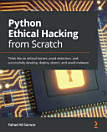The Hidden Risks of Modern Living: What Your Lifestyle Choices Are Hiding
About this ebook
The modern safety paradox reveals itself in how our attempts to eliminate traditional risks have created entirely new categories of danger that we are only beginning to understand. Our ancestors worried about immediate threats like predators, starvation, and exposure to the elements. Today, we have largely conquered these immediate dangers, but in doing so, we have created environments and lifestyles that expose us to chronic, long-term risks that are much more difficult to perceive and understand. These new risks operate on timescales that extend far beyond our natural ability to recognize cause and effect relationships, making them particularly insidious.
The speed of technological and social change has outpaced our biological evolution, creating fundamental mismatches between the environments we now inhabit and the bodies and minds that evolved over millions of years in very different circumstances. Our nervous systems, digestive systems, sleep cycles, and social bonding mechanisms all evolved for life in small groups engaged in physical activity in natural environments. The radical departure from these conditions in modern life creates stress on our biological systems that manifests in ways we are only beginning to understand.






